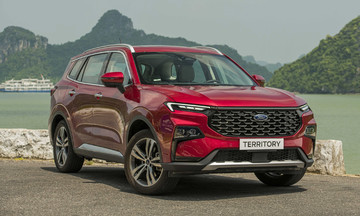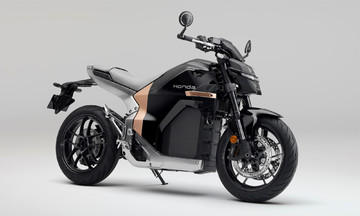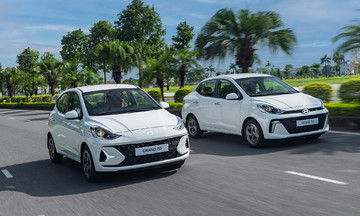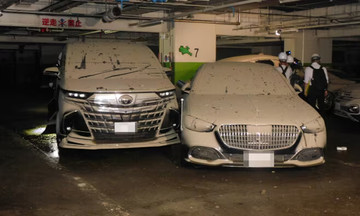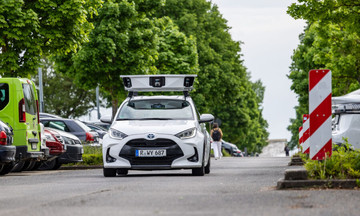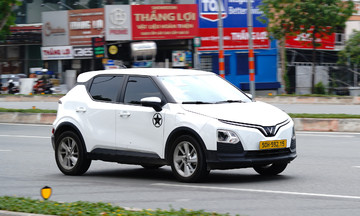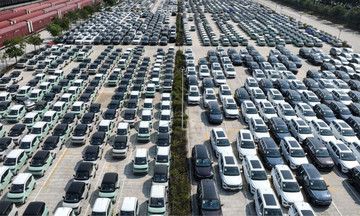"The market will die!"
The flood of new vehicles has made it harder for dealerships to turn a profit, said Chen Keyun, a retired dealer owner in Jiangsu province. His assessment was echoed by 4 other dealers.
Chen said the problems – such as dealers selling new cars at a loss and reselling them to brokers who then resell them as "used" but undriven cars – stem from China's "production-oriented" industry model. He said automakers have ignored real demand but continued to expand capacity and raise sales targets, forcing dealers to take on more inventory.
A survey in August by the China Automobile Dealers Association (CADA) found that only 30% of dealerships were profitable.
In June, dealer groups in Henan, Sichuan, and the Yangtze River Delta publicly voiced their discontent.
"We urge automakers to formulate sales guidance policies that align with market realities," the Henan Automobile Chamber of Commerce said in an open letter to automakers. "If sales channels collapse, the market will die!"
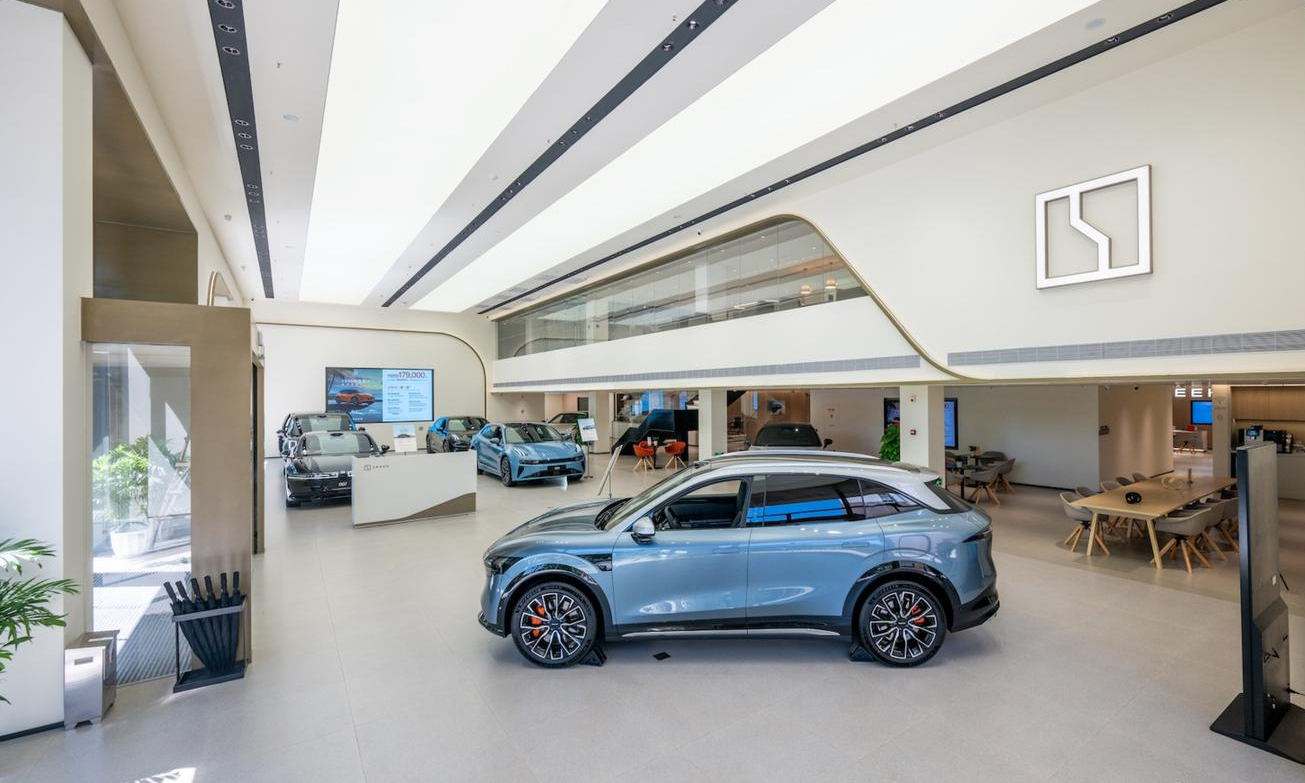 |
A Zeekr dealership in China. Photo: Genspark |
A Zeekr dealership in China. Photo: Genspark
Large dealerships purchase excessive inventory to meet automakers' sales targets and receive factory rebates, Chen said.
"If you've sold 16 out of a target of 20 cars for the month, what do you do with the remaining 4 on the last day of the month?" a Jiangsu dealer asked. Selling those cars, even at clearance prices, meant qualifying for a bonus of around 80,000 CNY, equivalent to 11,200 USD, and helping him break even.
Lang Xuehong, CADA's deputy secretary-general, acknowledged that dealers are selling at up to 20% below cost. This is "unprecedented," she told Reuters in a June 24 interview.
Electric vehicle brands Neta and Zeekr have inflated sales figures in recent years, with Neta doing so by over 60,000 vehicles. Automakers arranged for vehicles to be insured even before they were sold, so these cars could be officially counted toward monthly sales targets.
In July, Zeekr said the cars had been given compulsory traffic insurance for display safety and were legally new when sold to buyers.
Neta and Zeekr exemplify industry-wide sales manipulation, much of it involving never-driven used cars that have been insured and counted as sold. Dealers and traders export these cars as used, often incentivized by local governments, or sell them domestically through gray markets.
In June, four regional dealer groups called automakers' incentives "a disguised way to force dealers to falsify sales" without naming the car companies.
Excess inventory leads to livestream sales
At a Chengdu shopping mall, Wang Lihong rides an electric scooter up to the rooftop parking lot, selfie stick in hand, filming a video to post on social media. Wang is a livestream host for Zcar, one of the gray market players that buy and sell new cars that dealers can't unload.
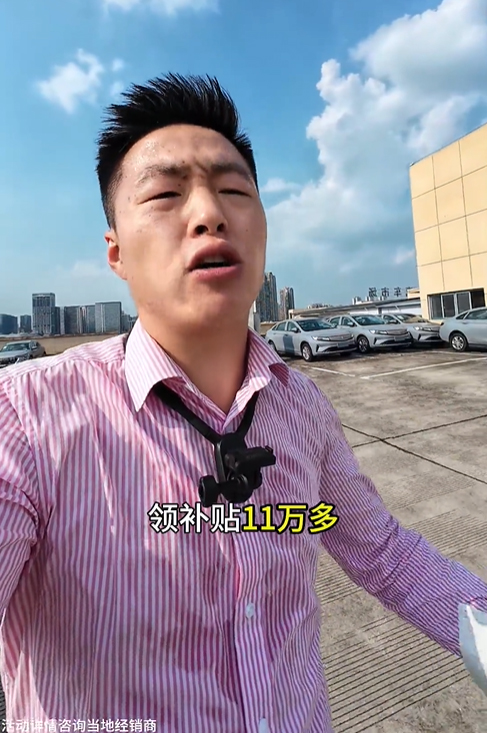 |
Screenshot of Wang Lihong livestreaming for Zcar, showcasing various car models from different brands, on 30/7. |
Livestreamers like Wang broadcast on platforms like Douyin. Wang recently told his 1.25 million followers that Zcar is the largest seller of "0 km" used cars in Sichuan province. He said cars are usually available in March, June, September, and December, "when dealers rush to meet quarterly or annual sales targets set by automakers to receive rebates."
"There are no cars that can't be sold, only prices that aren't right," Wang said in a July livestream. Zhou Yan, Zcar's marketing director, told Reuters the company can sell at deep discounts thanks to buying some cars directly from automakers in bulk.
In June, they advertised a batch of GM's Chevrolet Malibu. Zhou said Zcar bought over 3,000 Malibus from the SAIC-GM joint venture and sold them for under 14,000 USD each, down from a list price of 24,000 USD.
GM said that "authorized dealerships are the only official channel for the sale of our vehicles," and Zcar "is not an affiliated dealer in any way" with SAIC-GM. The company declined to elaborate.
Zcar later told Reuters that its subsidiary, Cheshi, bought 3,428 Malibus mainly for wholesale distribution to dealers, without specifying which dealers.
Zcar added that it offers "popular, attention-grabbing models to attract customers to the store" and often sells at a loss. Some Audis were sold at half price.
"Zombie" cars fill graveyards
Some unsold new cars end up in car graveyards. Local governments are working to clear abandoned lots, which take up land and pose environmental hazards.
Other cars languish on auction websites, including those run by e-commerce giant Alibaba. Many attract no bids. A Reuters review of Alibaba listings identified over 5,100 auction notices this year for new, insured, and registered BYDs, up from 61 in 2024.
Courts have also held auctions for new, unsold cars belonging to bankrupt dealerships. An April 2024 Alibaba listing advertising a batch of 94 cars made by the Dongfeng Honda joint venture showed pictures of vehicles parked indoors. The white body of one was coated in grime. Plastic sheets covered the front seats.
Another liquidation ordered by a Shenzhen court involved nearly 2,000 cars made by Denza in 2018, now owned by BYD. The vehicles sat in Chengdu, Guangzhou, and at BYD's Shenzhen plant after the buyer, car-hailing firm Guizhou Qianxi, became embroiled in a dispute with Denza in 2020 over rebates and unspecified contract issues.
The cars sat gathering dust until 2023, when the court put them up for auction. Court-appointed appraisers found the cars largely unused, with pristine interiors. They were left in various locations – including an area next to a grocery store where villagers hung laundry.
The vehicles soon appeared on social media platforms. Livestreamers sold the cars for as little as 9,000 USD – just 25% of their original price.
My Anh



